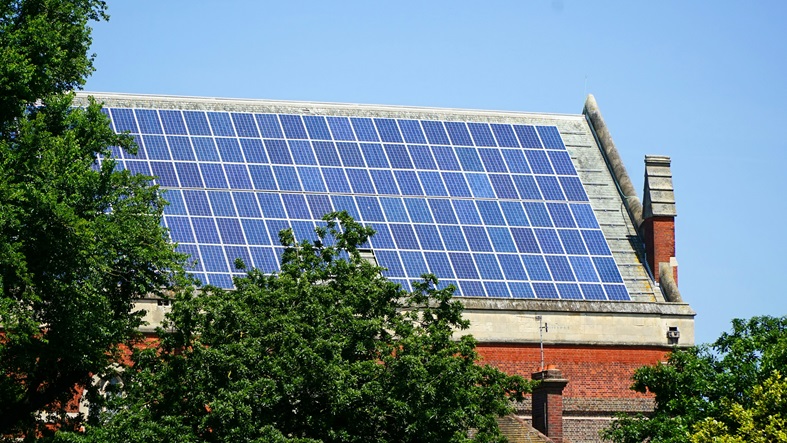Emergency Power: Home Energy Storage for Outages
In an era where disruptions to the power grid are becoming increasingly common, home energy storage emerges as a crucial solution for ensuring uninterrupted power supply during outages. This article explores the role of home energy storage systems in providing emergency power, offering homeowners a reliable and independent source of electricity when they need it most.
The Vulnerability of Traditional Power Sources
Grid Dependence
Rising Challenges in a Connected World
Traditional power sources are vulnerable to a range of factors, from severe weather events to infrastructure failures. As our dependence on a centralized grid system increases, the likelihood of power outages rises, leaving households without electricity for essential needs. Home energy storage presents a transformative solution, mitigating the impact of grid failures and ensuring a continuous power supply.
Frequency of Outages
Navigating the Increasing Disruptions
Power outages are no longer rare occurrences; they have become a part of the modern landscape. Frequent storms, natural disasters, or even scheduled maintenance can disrupt the grid, leaving homes in the dark. Home energy storage addresses this vulnerability by providing a decentralized and reliable source of energy that kicks in seamlessly when the grid falters.
Empowering Homes with Emergency Power
Continuous Power Supply
A Lifeline in Critical Moments
The primary advantage of home energy storage during outages is the ability to maintain a continuous power supply. When the grid goes down, the stored energy in the system activates, ensuring that essential appliances, medical equipment, and lighting remain operational. This uninterrupted power flow becomes a lifeline, especially in critical moments when access to electricity is paramount.
Customized Power Prioritization
Tailoring Energy Distribution for Needs
Home energy storage systems allow homeowners to customize power prioritization during outages. Critical appliances like refrigerators, medical devices, and communication tools can be designated as top priorities. This intelligent energy distribution ensures that essential functions are sustained, providing a level of control and adaptability that traditional power sources lack.
Technologies Enabling Emergency Power
Hybrid Systems
Integrating Multiple Energy Sources
Hybrid home energy storage systems, combining batteries with additional power sources like solar panels or generators, enhance emergency power capabilities. In times of extended outages, solar panels can recharge the batteries during the day, offering a sustainable and continuous power supply. This multi-source integration increases the resilience and versatility of home energy storage for emergency scenarios.
Advanced Inverter Technologies
Efficient Power Conversion
The role of advanced inverters in emergency power cannot be overstated. These devices efficiently convert DC power from the batteries into AC power for household use. During outages, inverters ensure a smooth transition to stored energy, maintaining a stable and reliable power output. Some advanced inverters also offer grid-forming capabilities, creating a microgrid within the home for added security.
Benefits Beyond Emergency Scenarios
Energy Independence
Reducing Reliance on External Sources
While home energy storage excels in providing emergency power, its benefits extend far beyond outage scenarios. By reducing reliance on external sources and the traditional grid, homeowners embrace a level of energy independence that aligns with sustainability goals. This shift towards decentralized power contributes to a more resilient and self-sufficient energy landscape.
Cost Savings
Mitigating Financial Impacts of Outages
Beyond the immediate benefits of emergency power, home energy storage systems can lead to long-term cost savings. The ability to store and utilize energy during off-peak hours, when electricity rates are lower, contributes to reduced energy expenses. Additionally, avoiding financial losses associated with spoiled food, business interruptions, or equipment damage during outages adds an extra layer of economic resilience.
Planning for Emergency Power
System Capacity Assessment
Ensuring Adequate Power Reserves
To optimize home energy storage for emergency power, homeowners should conduct a system capacity assessment. Understanding the energy needs during outages allows for the selection of an appropriately sized storage system. This assessment considers the duration of potential outages, the critical appliances to be powered, and the energy consumption patterns unique to each household.
Regular Maintenance and Testing
Sustaining System Reliability
Regular maintenance and testing are crucial aspects of ensuring the reliability of home energy storage systems during emergencies. Conducting periodic checks on batteries, inverters, and associated components guarantees that the system operates at peak efficiency when needed. Simulating outage scenarios through regular testing prepares homeowners for seamless transitions to emergency power.
Conclusion: A Resilient Future with Home Energy Storage
In an age where power outages are becoming more prevalent, home energy storage emerges as a beacon of resilience and self-sufficiency. Beyond being a solution for emergency power, these systems contribute to reduced carbon footprints, cost savings, and a fundamental shift towards decentralized energy. As technology advances and awareness grows, home energy storage becomes not just a luxury but a cornerstone of a resilient and sustainable future.
Post time: Jan-19-2024


